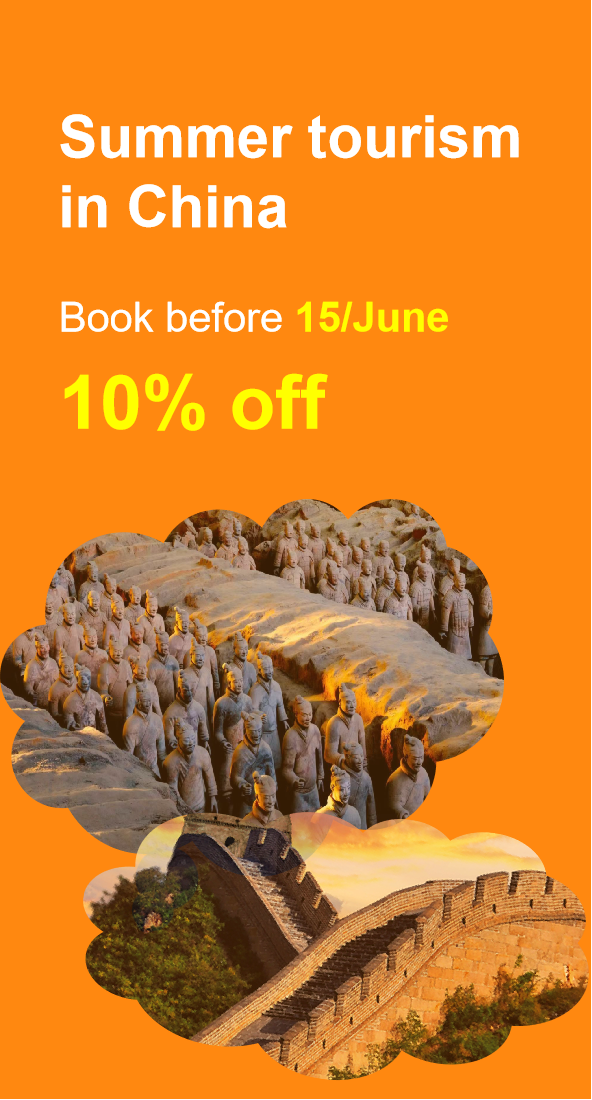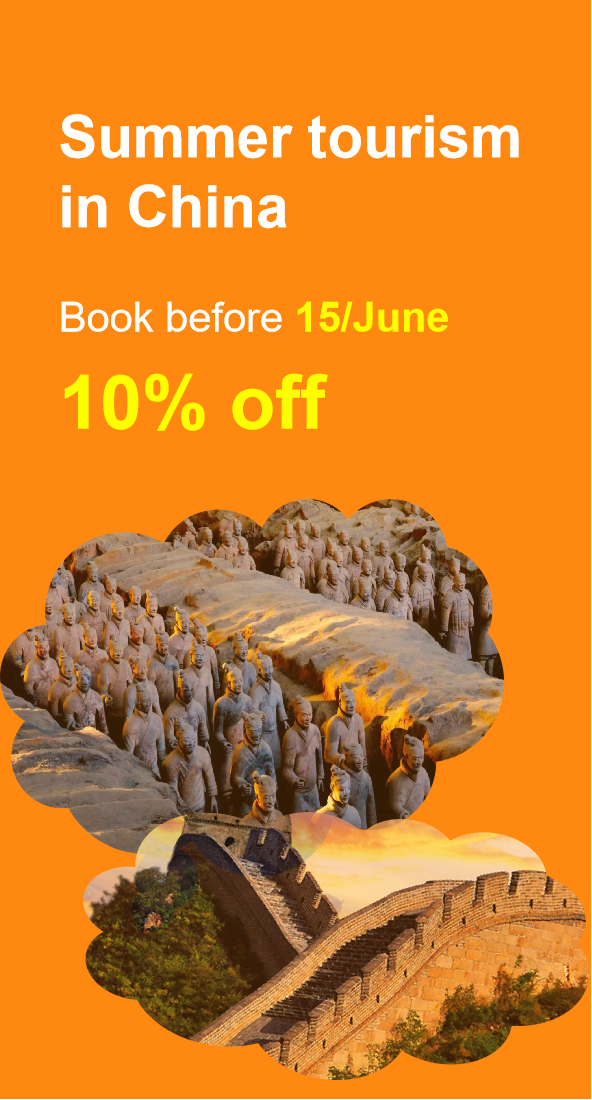Longtaitou Festival
Longtaitou Festival: China’s Auspicious Celebration of Renewal and Prosperity

Dragon Head - Raising Day, also known as Longtaitou Festival, is a vibrant and culturally significant event in China. Falling on the second day of the second lunar month, usually in late February or early March, this festival marks the traditional start of spring and agricultural activities. According to Chinese mythology, on this day, the dragon, a symbol of power, strength, and good fortune, awakens from its winter slumber and ascends to the heavens. For travelers, it offers a unique opportunity to witness a blend of ancient customs, lively folk performances, and delicious traditional foods, all centered around the theme of renewal and prosperity. Below, we will explore its historical roots, regional traditions, and the joyous spirit of celebration.
 Dates & Public Holidays: A Lunar Welcome to Spring
Dates & Public Holidays: A Lunar Welcome to Spring
▶ Lunar Date & Seasonal Significance
The festival occurs on the second day of the second lunar month. In traditional Chinese culture, this period is considered a turning point when winter fades away, and spring begins to spread its warmth across the land. Farmers start preparing their fields for planting, and families engage in various activities to祈求 (qí qiú, pray for) a bountiful harvest and good luck in the coming year.
▶ 2025 Key Dates
- Lunar Date: March 1, 2025 (2nd day of the 2nd lunar month)
- Note: Dragon Head - Raising Day is not a national public holiday in China. However, it is widely celebrated across the country, and some local communities may organize special events or have adjusted work schedules to accommodate the festivities.
▶ Public Holiday Schedule (2025 - 2029)
| Year | Lunar Date | Gregorian Date Range (Peak Celebrations) |
|---|---|---|
| 2025 | March 1 | February 28 - March 2 |
| 2026 | February 19 | February 18 - 20 |
| 2027 | March 10 | March 9 - 11 |
| 2028 | February 27 | February 26 - 28 |
| 2029 | March 16 | March 15 - 17 |
 Core Traditions & Celebrations: From Haircuts to Dragon Dances
Core Traditions & Celebrations: From Haircuts to Dragon Dances
▶ Hair - Cutting Ritual: A Fresh Start
- Symbolism: In Chinese culture, getting a haircut on Dragon Head - Raising Day is believed to bring good luck and a fresh start. It is said that cutting off old hair symbolizes shedding the past and embracing new opportunities. Children often have their hair cut on this day to ensure healthy growth and a bright future, while adults see it as a way to rejuvenate themselves both physically and spiritually.
- Regional Variations:
- Beijing: Many traditional barber shops in Beijing experience a surge in customers on this day. Some shops even offer special discounts or decorations related to the dragon theme to attract more business.
- Guangzhou: In Guangzhou, families may take their children to well - known barber shops and have the barbers create unique hairstyles inspired by dragons, adding a festive touch to the hair - cutting ritual.
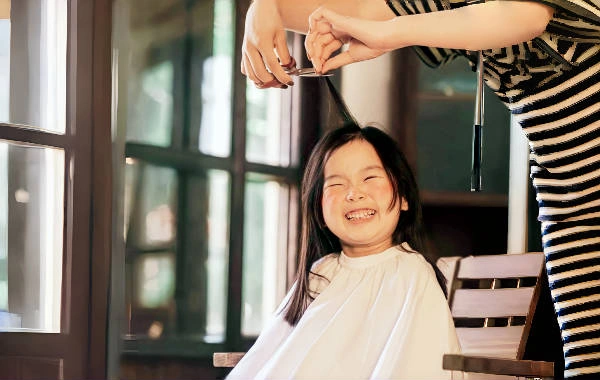
▶ Dragon Dances: Unleashing the Power of the Dragon
- Origins: Dragon dances have a long history in China, dating back thousands of years. They are performed to mimic the movements of the dragon, which is believed to bring rain, prosperity, and good fortune. During Dragon Head - Raising Day, dragon dances are a common sight in streets, squares, and temples across the country, adding a lively and auspicious atmosphere to the celebrations.
- Modern Rituals:
- Street Parades: In many cities, large - scale dragon dance parades are organized. The dragons, often made of colorful silk and bamboo, can be several meters long and require a team of performers to manipulate. The parades are accompanied by loud drums, gongs, and firecrackers, creating a festive and exciting spectacle. For example, in Shanghai's Nanjing Road, dragon dance parades attract thousands of spectators every year.
- Temple Performances: Some ancient temples also host dragon dance performances as part of their religious ceremonies. These performances are often more traditional and solemn, with performers wearing elaborate costumes and following strict rituals. In Xi'an's Big Wild Goose Pagoda, visitors can witness authentic dragon dance performances that combine religious significance with cultural entertainment.
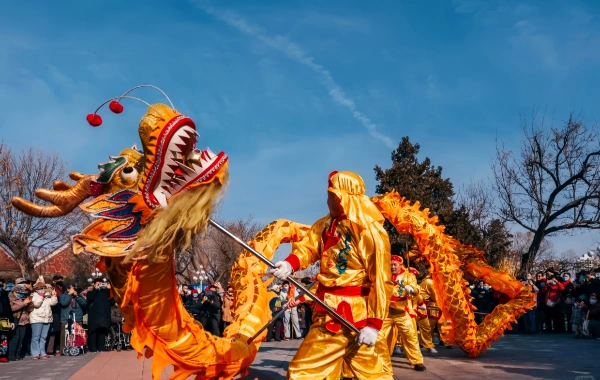
▶ Eating Dragon - Themed Foods: Nourishing the Body and Soul
- Symbolism: Food plays an important role in Dragon Head - Raising Day celebrations. Many traditional dishes are named after dragons or have dragon - related shapes, symbolizing good luck, strength, and prosperity.
- Must - Try Dishes for International Travelers:
- Dragon Whisker Noodles: These thin and long noodles are said to resemble the whiskers of a dragon. They are usually served in a savory broth with various toppings such as meat, vegetables, and eggs. In Chengdu, you can find many local noodle shops offering delicious dragon whisker noodles.
- Dragon - Scaled Pancakes: Made from flour and water, these pancakes are rolled out thinly and then cooked on a griddle until golden brown. The surface of the pancakes is often marked with patterns that resemble dragon scales, adding a festive touch. In Beijing's Wangfujing Street, you can try these unique pancakes at street food stalls.
- Dragon - Eye Dumplings: These dumplings are filled with sweet or savory ingredients and are shaped like eyes. They are believed to bring clarity of vision and good judgment. In Hangzhou, you can sample dragon - eye dumplings made with fresh local ingredients.
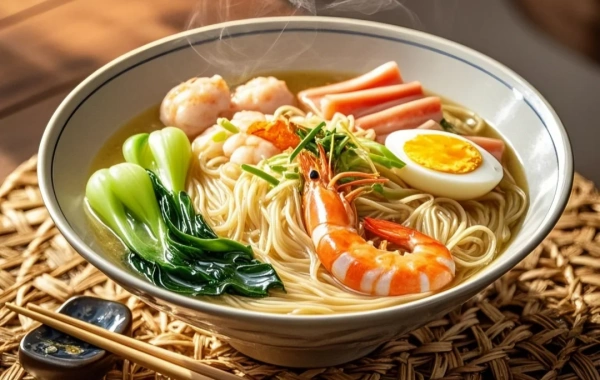
▶ The Legend of the Jade Emperor and the Dragon King: A Tale of Cooperation
- Content: According to the legend, the Jade Emperor, the ruler of heaven in Chinese mythology, ordered the Dragon King to control the rainfall on Earth. However, the Dragon King was often negligent in his duties, causing either droughts or floods. One year, on the second day of the second lunar month, the Jade Emperor punished the Dragon King by cutting off his whiskers. The Dragon King, realizing his mistake, promised to perform his duties diligently from then on. Since then, on Dragon Head - Raising Day, people celebrate the Dragon King's awakening and his commitment to bringing rain and prosperity to the land.
- Significance: This legend emphasizes the importance of responsibility and cooperation between humans and the natural world. It also reflects the Chinese people's long - standing belief in the power of nature and the need to live in harmony with it.
 Culinary Delights: A Feast for the Senses
Culinary Delights: A Feast for the Senses
▶ Must - Try Dishes for International Travelers
- Spring Pancakes: As spring arrives, spring pancakes become a popular food during Dragon Head - Raising Day. These thin pancakes are usually filled with a variety of fresh vegetables, such as lettuce, cucumber, and bean sprouts, as well as meat or tofu. They are rolled up and eaten by hand, symbolizing the start of a new agricultural season and the abundance of fresh produce. In Jinan, Shandong Province, you can taste authentic spring pancakes made with local ingredients.
- Fried Spring Rolls: Similar to spring pancakes, fried spring rolls are also a favorite during this festival. They are made by wrapping a mixture of vegetables and meat in a thin pastry shell and then deep - frying until crispy. The golden - brown color of the spring rolls represents wealth and good fortune. In Guangzhou, you can find a wide variety of fried spring rolls with different fillings in local restaurants.
- Pig's Head Meat: In some regions, eating pig's head meat on Dragon Head - Raising Day is considered a symbol of good luck and prosperity. The meat is usually cooked slowly until it is tender and flavorful. In Harbin, Heilongjiang Province, you can try pig's head meat prepared in traditional Northeast Chinese style.
▶ Symbolic Foods & Their Meanings
- Noodles: As mentioned earlier, noodles symbolize longevity and good luck. Eating noodles on Dragon Head - Raising Day is believed to bring a long and prosperous life.
- Dumplings: Dumplings are shaped like ancient Chinese silver ingots, representing wealth and prosperity. Making and eating dumplings with family and friends is a common activity during the festival, symbolizing unity and happiness.
 Traveling During Dragon Head - Raising Day: Tips & Destinations
Traveling During Dragon Head - Raising Day: Tips & Destinations
▶ Essential Travel Advice
- Respect Local Customs: Dragon Head - Raising Day is a time of great cultural significance in China. It is important to respect local traditions and rituals, such as not interrupting dragon dance performances or making loud noises near religious sites.
- Book Accommodations in Advance: Although not a major public holiday, some popular tourist destinations may experience an increase in visitors during the festival. It is advisable to book your accommodations well in advance to ensure availability, especially in cities known for their Dragon Head - Raising Day celebrations.
- Dress Appropriately: Since the festival is often held in early spring, the weather can be unpredictable. It is best to dress in layers and bring a light jacket or umbrella, depending on the local climate.
▶ Top 5 Destinations for International Visitors
Beijing
- The Forbidden City: During Dragon Head - Raising Day, the Forbidden City may host special cultural exhibitions related to the festival, showcasing traditional Chinese art, costumes, and rituals. You can also witness dragon dance performances in the courtyards of the palace, adding a festive atmosphere to this ancient architectural marvel.
- Wangfujing Street: This bustling commercial street is a great place to sample traditional Dragon Head - Raising Day foods, such as dragon - scaled pancakes and spring pancakes. You can also buy dragon - themed souvenirs and handicrafts to take home as a memento of your trip.
Xi'an
- Terracotta Army: After visiting the world - famous Terracotta Army, you can explore the local markets in Xi'an, where you can find a variety of traditional festival foods and handicrafts. Some markets may also have small - scale dragon dance performances or folk art displays.
- Big Wild Goose Pagoda: The pagoda and its surrounding area often have cultural performances and rituals during the festival. You can watch traditional Chinese operas and participate in lantern - lighting ceremonies, experiencing the rich cultural heritage of Xi'an.
Hangzhou
- West Lake: The serene West Lake provides a beautiful backdrop for the Dragon Head - Raising Day celebrations. You can take a boat ride on the lake and enjoy the spring scenery while watching dragon dance performances on the shores. Some lakeside restaurants also offer special festival menus featuring traditional dishes.
- Lingyin Temple: This famous Buddhist temple hosts special ceremonies during the festival to pray for good luck and prosperity. You can join the local worshippers in offering incense and prayers, and learn about the religious significance of the festival.
Chengdu
- Kuanzhai Alley: This ancient street is lined with traditional Sichuan - style buildings and is a popular tourist destination. During Dragon Head - Raising Day, you can find many local restaurants serving dragon - themed foods and traditional Sichuan snacks. You can also watch folk performances, such as Sichuan opera and face - changing, in the alley's theaters.
- Chengdu Research Base of Giant Panda Breeding: Although not directly related to the festival, visiting the panda base in spring is a wonderful experience. The lush greenery and blooming flowers create a beautiful environment, and you can see the adorable pandas enjoying the spring weather.
Guangzhou
- Chen Clan Ancestral Hall: This well - preserved ancestral hall is a masterpiece of Guangdong traditional architecture. During the festival, it may host cultural exhibitions and performances related to Dragon Head - Raising Day, showcasing the unique cultural traditions of Guangdong Province.
- Shamian Island: This historic island is known for its European - style buildings and charming streets. During the festival, you can stroll along the riverside promenade, enjoy the spring scenery, and sample traditional Cantonese foods in the local restaurants.
▶ Hidden Gems Off the Beaten Path
Wuyuan, Jiangxi
- Jiangling Village: This picturesque village is famous for its rape flower fields, which are in full bloom during Dragon Head - Raising Day. You can take a leisurely walk through the fields, enjoying the beautiful scenery and the fresh spring air. The village also has some traditional folk performances and handicraft workshops, allowing you to experience the local culture up close.
- Likeng Village: Likeng Village is a well - preserved ancient village with a long history. During the festival, you can witness traditional rural rituals, such as ancestral worship and dragon dance performances in the village squares. You can also stay in a local guesthouse and experience the simple and peaceful rural life.
Zhouzhuang, Jiangsu
- Shuangqiao Ancient Street: This ancient street is lined with traditional water - town buildings and is a great place to shop for local handicrafts and souvenirs. During Dragon Head - Raising Day, you can find many stalls selling traditional festival foods and dragon - themed decorations. You can also take a gondola ride along the canals and enjoy the spring scenery of the water town.
- Shen House: Shen House is a large and well - preserved ancient residence in Zhouzhuang. It showcases the traditional architecture and lifestyle of the wealthy families in the water town. During the festival, the house may host cultural exhibitions and performances, providing a glimpse into the history and culture of Zhouzhuang.
Huangyao Ancient Town, Guangxi
- Guzhai Village: This ancient village is located near Huangyao Ancient Town and is known for its beautiful natural scenery and traditional folk culture. During Dragon Head - Raising Day, you can participate in local rural activities, such as planting trees and making traditional handicrafts. You can also enjoy the delicious local cuisine in the village's farmhouses.
- Huangyao Ancient Town Square: The town square is the center of cultural activities in Huangyao Ancient Town. During the festival, you can watch dragon dance performances, folk art displays, and traditional music concerts. You can also interact with the local residents and learn about their customs and traditions.
 History & Cultural Evolution
History & Cultural Evolution
▶ Ancient Origins
- Pre - Qin Period: The origins of Dragon Head - Raising Day can be traced back to the pre - Qin period. In ancient Chinese society, people had a deep reverence for nature and believed in the existence of various gods and spirits. The dragon, as a mythical creature associated with water, rain, and agriculture, was worshipped as a guardian deity. Early rituals were held to祈求 (qí qiú, pray for) the dragon to bring rain and ensure a good harvest.
- Han Dynasty (206 BCE - 220 CE): During the Han Dynasty, with the development of agriculture and the spread of Confucianism, Taoism, and Buddhism, Dragon Head - Raising Day gradually took shape as a formal festival. The dragon became a more prominent symbol in Chinese culture, representing power, strength, and good fortune. Rituals and customs related to the dragon, such as dragon dances and the offering of sacrifices, became more widespread.
▶ Modern Adaptations
- Cultural Integration: In modern times, Dragon Head - Raising Day has integrated elements from different regions and cultures. While traditional customs such as hair - cutting and dragon dances are still widely practiced, new forms of celebration have emerged, such as cultural exhibitions, music concerts, and food festivals. This integration has made the festival more diverse and attractive to people of all ages.
- Tourism Promotion: Dragon Head - Raising Day has become an important part of China's cultural tourism. Many tourist destinations now organize special events and activities during the festival to attract visitors and promote traditional Chinese culture. For example, some cities have built dragon - themed parks or cultural centers, providing a platform for tourists to learn more about the festival's history and customs.
 Embrace the Spirit of Renewal
Embrace the Spirit of Renewal
Dragon Head - Raising Day is a unique and fascinating festival that reflects the rich cultural heritage and traditional values of China. Whether you are witnessing the ancient rituals, enjoying the lively performances, or savoring the delicious traditional foods, the festival invites you to embrace the spirit of renewal and prosperity. Come with an open mind and a sense of curiosity, and you will discover a world of cultural beauty and spiritual significance during Dragon Head - Raising Day in China. Welcome to this extraordinary journey of celebration and rejuvenation!
What Our Clients Say?
Based on 10,000+ traveler reviews






